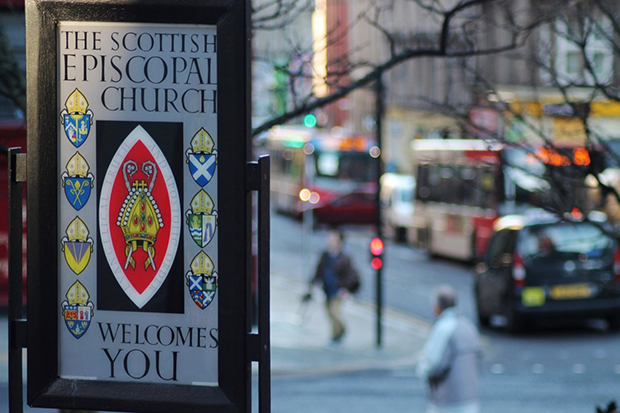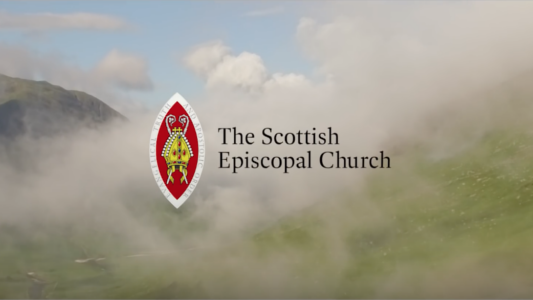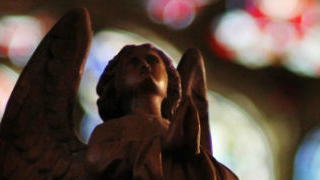The Vestry is responsible for the payment of Stipend and clergy costs of Rectors and Priests-in-Charge. Payment may be delegated to a Paying Officer. In the case of a linked Charge, stipend and costs will be shared between the Vestries of the Charges as mutually agreed between them. Where this situation exists, one Charge will take responsibility for making the payments on behalf of the other linked Charges.
In some Dioceses a central payroll service is operated by the Diocesan Office, in which case, the Paying Officer is relieved of at least the monthly calculations and, possibly, other related functions. Paying Officers should consult with their Diocesan Offices to ascertain the position in their Diocese.
A memo is circulated each year to Paying Officers and Vestry Treasurers by the General Synod Office detailing the rate of Standard Stipend, Pension Contribution, mileage rates etc for the following year. A copy of the memo is also sent to all stipendiary clergy. The most recent memo is available from the SEC website.
If for any reason it is foreseen that full payment cannot be met, the Diocesan Treasurer must be informed immediately.
(The Vestry is also responsible for any payments to other employees and for the correct operation of PAYE records in respect of such employees.)
1 Operation of PAYE
HM Revenue and Customs (HMRC) collect Income Tax and National Insurance Contributions from employees’ pay through the Pay As You Earn (PAYE) system. In this context clergy are considered to be employees. If Paying Officers are operating a PAYE system they should ensure that they are familiar with the strict time limits relating to the submission of funds and information to HMRC.
Further information on PAYE can be found on the HMRC website:
The Employer’s section of the HMRC website contains more detailed information.
2 Stipend
One twelfth of the annual stipend, less deductions for PAYE, National Insurance and any others including voluntary pension contributions, must be paid by the last Thursday of the month.
The full payment must be made if the member of clergy is ill. (Statutory Sick Pay procedures are described in Section 4).
It is recommended that for each month a pay-slip be given to the member of clergy, the actual form depending on local circumstances. A sample layout will be found at the end of this note.
3 Scottish Episcopal Church Pension Fund
All stipendiary clergy must be offered membership of the SEC Pension Fund. Pension Contributions are paid by monthly standing order issued annually by the Pension Fund Administrator to Paying Officers. (Details regarding the contribution rate are also provided in the annual stipend memo issued to Paying Officers and Vestry Treasurers.) Clergy may make additional voluntary contributions to the separate SEC sponsored AVC pension scheme. These payments should also made by means of a monthly bank standing order.
The SEC Pension Fund is a contracted in, defined benefit (“final salary”) scheme. For the purposes of calculating pension contributions (and future pensions) clergy are categorised as either full-stipend, quarter-stipend, half-stipend or three-quarters-stipend. Further information relating to the Fund is available from the Pensions Administrator at the General Synod Office. (Pensions@scotland.anglican.org)
4 Statutory Sick Pay
An overview of the Statutory Sick Pay (SSP) scheme can be found on HMRC’s website.
The HMRC’s Employer Helpbook for SSP is available for download from the HMRC website..
Statutory Sick Pay, (SSP), requirements apply for any illness suffered by an employee for a period of up to twenty-eight weeks. Records must be kept for each employee in the case of any illness that lasts for one day or more. For this purpose, the Church operates a seven-day working week for clergy.
Any illness that lasts for four days or more may qualify for benefit. Any SSP paid in the tax month over and above 13% of your total National Insurance liability for the month can be recovered by the Paying Officer, by deducting the benefit from the monthly return of PAYE and National Insurance contributions to the HMRC. (Note in dioceses operating a central payroll system it is unlikely that SSP will be recoverable.)
At the end of twenty-eight weeks continuous illness, the member of clergy will be required to recover Employment and Support Allowances directly from the Department of Work and Pensions, which may then be repaid to the Charge. Further information is available from the DWP website.
An appropriate medical certificate (“fit note”) should be obtained for any period of illness exceeding seven days. The Employer Helpbook provides further information on this subject.
5 Absence of Clergy for holidays, illness, vacancy or other reasons
The Vestry is responsible, where necessary, for meeting the expenses of a Locum Tenens during periods of illness, and for four Sundays per year to cover holidays, and also when there is a vacancy in the Charge.
Dioceses are responsible for agreeing appropriate rates for Locum Tenens.
6 Clergy Expenses
The Vestry is responsible for paying:
- the council tax on the clergy’s official residence;
- the clergy’s telephone rental and all calls related to Church business. (With itemised telephone billing recovery of private call costs should be fairly straightforward. The rental may however be treated by HMRC as a benefit in kind);
- stationery and postage on official mail;
- other expenses as agreed by the Vestry.
7 Clergy Travel
Actual travel expenses incurred by a member of clergy should be reimbursed by the Vestry. Where a car is provided, it is regarded as a taxable benefit and must be declared on the form P11D.
If the member of clergy uses his / her own car, the maximum annual mileage that will be done on parochial duty should be agreed in advance by the member of clergy and the Vestry. When the yearly mileage has been agreed, it is the Vestry’s responsibility to pay up to the maximum mileage on a monthly basis according to the mileage done in the month.
Mileage should be reimbursed using the HMRC’s Approved Mileage Allowance Payments (AMAP) rates. The rates are notified by the General Synod Office each year and when any change takes place. The rates can also be found on the HMRC website. (There are different rates for cars, motorbikes and bicycles.)
The member of clergy must keep a log of all journeys undertaken, and submit a monthly mileage expenses claim to the Vestry Treasurer (Paying Officer) of the total. Where claims remain within the AMAP parameters, the mileage allowances paid need not be entered on the Income Tax form P11D. Any profits in excess of the AMAP rates must be declared on form P11D.
8 Easter Offerings
Where Easter or other offerings are given to members of the clergy, a record of these should be aggregated with the stipend only for the purposes of calculating PAYE and National Insurance.
9 Children’s Allowances
Forms are sent to all stipendiary clergy in November. On return of the forms, the General Synod Office arranges payment to the Paying Officer, who in turn arranges payment to the clergy through the payroll system. The allowance is therefore subject to income tax and National Insurance contributions.
To qualify children must be:
- below 16 years old, or
- below 21 years, if attending a full time educational establishment.
10 Other Remunerated Persons
Remuneration to any other person should be processed similarly to that of the clergy.
11 Clergy Tax returns
It is the responsibility of all Clergy to make their own tax returns. Clergy should be made aware that there is a specific tax return, and accompanying notes, issued by HMRC for Ministers of Religion (form SA101M). Clergy may wish to refer to the useful guidance on personal tax matters as they relate to clergy in Taxation of Ministers of Religion: A Rough Guide produced by the Churches’ Legislation Advisory Service (available from the CLAS website.)
12 Payments and Benefits in Kind given to Non-Stipendiary Ministers (NSMs)
It is recommended that all NSMs should be reimbursed for expenses incurred by them as NSMs. It is recognised that there are many forms of payment and benefit in kind provided to NSMs, but note should be made of Section 6.7 of the Digest of Resolutions which governs payments to NSMs.
The tax treatment of the various classes of payment and benefit in kind are as follows:
a) Expenses
- There is a potential liability to tax on expenses reimbursed to and bills paid on behalf of NSMs.
- Any payment of a round sum allowance is subject to tax.
- In calculating tax liability, certain deductions are allowed against expenses reimbursed and allowances paid. Such deductible expenses must be wholly, exclusively and necessarily incurred in the performance of the NSMs duties as an NSM.
- Expenses incurred by the NSM as a member of the congregation, as distinct from those incurred arising out of the office of NSM, are not deductible expenses.
- This means that if an NSM is reimbursed only for actual expenses incurred arising out of his or her work as an NSM, no tax liability should arise.
- The use of HMRC’s Approved Mileage Allowance Payments (AMAP) rates will ensure that no tax liability arises out of the payment to an NSM by way of reimbursements for use of their car. Rates are advised annually by the General Synod Office and can also be found on the HMRC website.
b) Provision of Housing
- When a tied house is provided to a minister of religion for the better performance of his or her duties, the value of the accommodation provided is not generally taxable. However, where the duties of the NSM are only part-time (as will be the case for most NSMs) the value of the accommodation provided is likely to be taxable, at least in part.
- If a house is provided, but there is no requirement for the NSM to live in a particular locality, the value of the accommodation is taxable.
- Any tax liability will be based on the annual value of the accommodation. This value is the greater of:
Either
rent obtainable on a lease (other than a full insuring and repairing)
Or
the actual rent paid by the provider of the property.
c) Honoraria or Benefits in Kind
- Any payment made to an individual arising out of the holding of the office of NSM is taxable.
- A one-off grant made to an individual in order to reduce hardship arising solely from the individual’s personal circumstances is not taxable.
- Any personal gifts unconnected with the individual’s duties as a minister are not taxable.
It is therefore important to establish the nature of the payment being made. If a regular fixed sum payment (monthly, quarterly, half-yearly etc.) is made, it is likely to be considered as a payment arising out of the office of NSM and, in consequence, taxable.
Any benefit in kind provided to the individual, arising out of their holding the office of NSM, is taxable.
May 2012
The General Synod of the Scottish Episcopal Church does not accept responsibility for any loss or liability which may arise from reliance on information or expressions of opinion contained in this document.
General Synod of the Scottish Episcopal Church
Scottish Charity No SC015962







